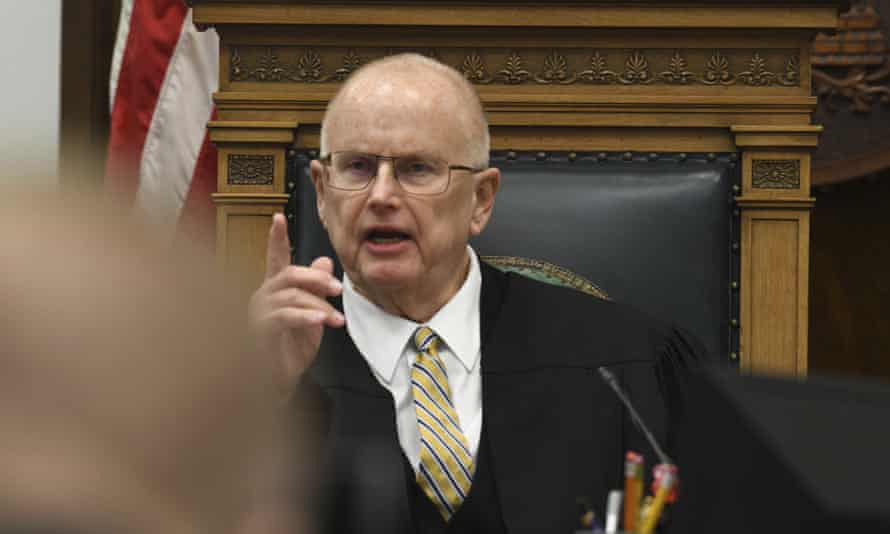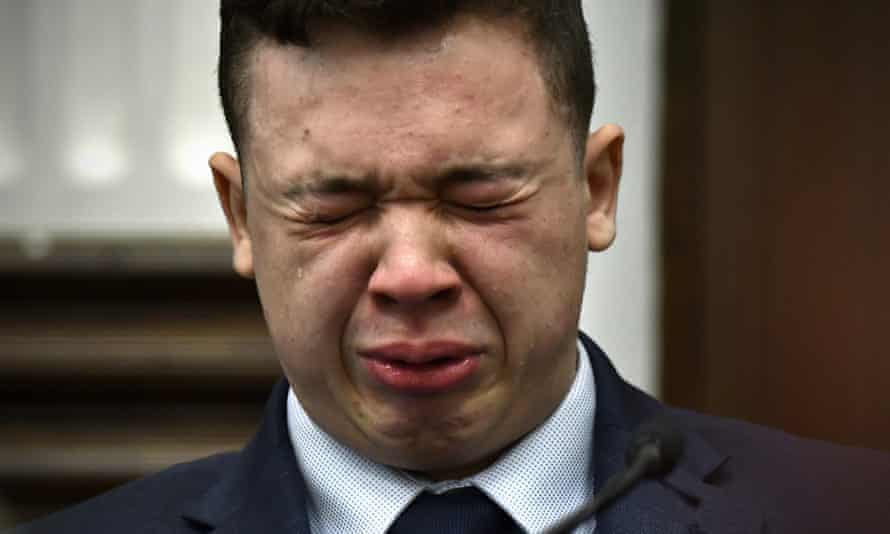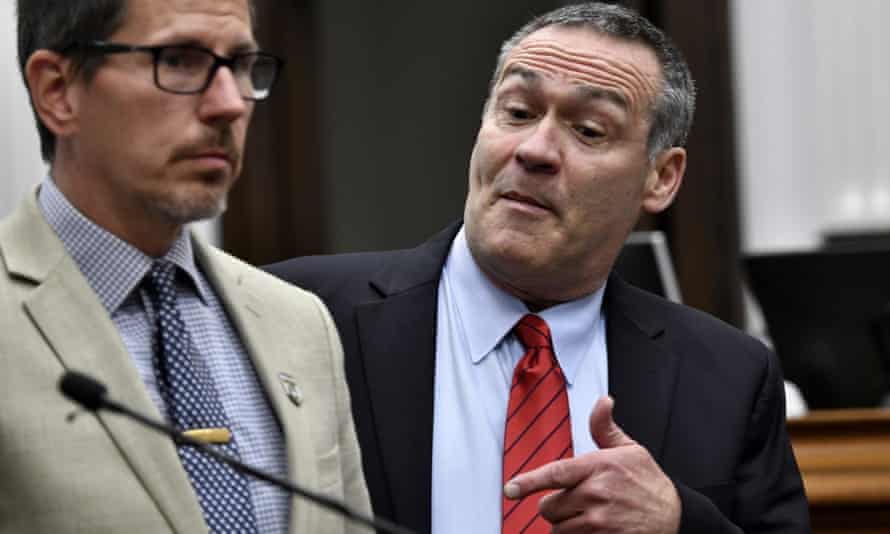As testimony wrapped up this week in the trial of Kyle Rittenhouse, a wary America has realized that the trial of the young man on charges linked to his killing of two racial justice protesters in Kenosha, Wisconsin, has not played out like many people expected.
With more than 30 witnesses taking the stand throughout a tumultuous week, a few called on by the state appeared to help Rittenhouse’s legal team with its claim that he was acting in self-defense. That added to notable errors made by prosecutors, as well as a judge with a simultaneously stern and flamboyant courtroom style who has shocked with controversial comments and outbursts.
With closing arguments set to begin on Monday the US has been gripped by the highly contentious case and many people are slowly understanding that the verdict in the trial is far from certain.
Last August, Rittenhouse traveled from his home in Antioch, Illinois, armed with an AR-15-style rifle and in response to a Kenosha-based militia calling for protection of businesses against protesters supporting the Black Lives Matter movement. The city had been racked by protests after the shooting of Jacob Blake, who is now paralyzed from the waist down, by a white police officer.
Since then, Rittenhouse has been charged with two counts of homicide, one of attempted homicide and two of recklessly endangering safety for firing his weapon near others. He is also charged with possession of a dangerous weapon by a minor, as he was 17 at the time. Rittenhouse has pleaded not guilty.
The case has come to symbolize different things for different slices of America. Many see Rittenhouse’s popularity on the right as a racist affront to the protests against police brutality and note how he and other armed white vigilantes were treated very differently by police when compared with protesters. Meanwhile, conservatives have raised huge amounts of money for Rittenhouse’s legal defense and see him as a hero.

Those controversies have been given extra edge by the bizarre behavior and controversial rulings of the judge in the case.
Before the trial, Judge Bruce Schroeder, Wisconsin’s longest-serving circuit judge, made headlines when he controversially ruled that the people shot by Rittenhouse last August cannot be referred to as “victims” by prosecutors. Defense attorneys may, however, call them “arsonists” or “looters”.
Even though rulings against using the term “victims” are not uncommon in trials involving self-defense claims, prosecutors argued that Schroeder was establishing a double standard.
Throughout the trial, several of the state’s witnesses appeared to have bolstered Rittenhouse’s self-defense argument, including Gaige Grosskreutz, the 27-year-old man he injured. Grosskreutz testified that he carried a loaded gun that night and acknowledged that it was aimed at Rittenhouse when Rittenhouse shot him.
During cross-examination, the defense attorney Corey Chirafisi asked Grosskreutz, “It wasn’t until you pointed your gun at him, advanced on him … that he fired, right?”
“Correct,” Grosskreutz answered. He has, however, affirmed that he did not intend to point his pistol at Rittenhouse, saying, “That’s not why I was out there. It’s not who I am.” Grosskreutz, who trained as a paramedic, testified that he volunteered as a medic at the protest.

Another witness, videographer Richie McGinniss, described the 36-year-old Joseph Rosenbaum whom Rittenhouse fatally shot as chasing after Rittenhouse and lunging for his gun. When prosecutor Thomas Binger pressed McGinniss to concede he did not know what Rosenbaum’s intent was, McGinniss had a pointed – and damaging – answer.
“Well,” McGinniss replied, “He said, ‘Fuck you,’ and then he reached for the weapon.”
Prosecutors also made at least one unforced error that allowed evidence favorable to the defense that otherwise would have been barred. When Rosenbaum’s fiancee, Kariann Swart, took the stand last Friday, a prosecutor asked her if Rosenbaum had taken medication earlier on the day he was shot.
By asking that question, Schroeder ruled, prosecutors opened the door for the defense to ask Swart what the medication was for. She told jurors it was for bipolar disorder and depression during cross-examination, in turn potentially adding credibility to the idea that Rosenbaum was an unstable aggressor.
As the trial unfolded, things took a startling turn on Wednesday after Rittenhouse testified that he was under attack when he shot the three men. The 18-year-old broke down crying uncontrollably at one point and Schroeder ordered a 10-minute break for him to compose himself.
During cross-examination, Binger asked Rittenhouse whether it was appropriate to use deadly force to protect property. He also posed questions about Rittenhouse’s silence after his arrest.
At that, the jury was ushered out of the room, and Schroeder loudly and angrily admonished Binger for pursuing an improper line of questioning and trying to introduce testimony that the judge earlier said he was inclined to prohibit. “Don’t get brazen with me,” Schroeder yelled at Binger.
As the defense argued for a mistrial with prejudice over Binger’s actions, Schroeder’s phone suddenly rang to the ringtone of God Bless the USA. Released in 1984 by Lee Greenwood, the song is popular in conservative circles and often played as Trump’s entrance theme during his rallies.

Schroeder also appeared to sympathize with the defense team on Wednesday after Rittenhouse’s lawyers suggested Apple’s pinch-to-zoom feature on tablets and phones can distort video evidence.
The company’s “iPads … have artificial intelligence in them that allow things to be viewed through three dimensions and logarithms,” the defense team argued. “This isn’t actually enhanced video. This is Apple’s iPad programming creating what it thinks is there, not what necessarily is there.”
Schroeder responded that the prosecution shouldered the burden of proof that Apple does not use artificial intelligence to manipulate footage.
“You’re the proponent of the exhibit, and you need to tell me that it’s reliable,” he said. The judge also suggested prosecutors find an expert during their brief recess, saying: “Maybe you can get someone to testify on this within minutes? I don’t know.”
On Thursday, Schroeder urged jurors to clap for military veterans after he saw that one of the defense’s witnesses, John Black, was a veteran. “Give a round of applause to the people who have served our country,” he announced in court.
Right before a lunch break, Schroeder made a racist comment that prompted widespread outrage on social media. “I hope the Asian food isn’t coming … isn’t on one of those boats along Long Beach harbor,” he said.
The judge appeared to have been referring to the record-breaking number of cargo ships that are waiting off the coast of California due to a supply chain backlog at the Los Angeles and Long Beach ports.
On Friday, Schroeder announced that he would allow the jury to consider lesser charges in one of the two killings, while ruling against the prosecution’s request to allow the jury to consider a lesser charge in the killing of Rosenbaum.
According to him, the evidence did not show that Rittenhouse could win acquittal on first-degree reckless homicide but be found guilty on the second.
Schroeder has set time limits of two and a half hours for each side’s closing arguments on Monday, saying: “The brain cannot absorb what the seat cannot endure.”


Comments